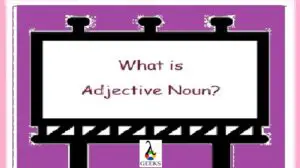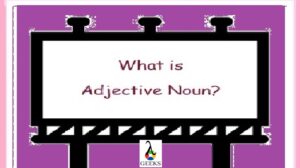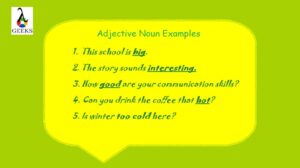Helping Verbs are words that stand before the main verb to form a phrasal verb sentence. Here we are listing 25+ Helping Verb Examples that will include all of its kinds and usages.
In traditional English Grammar usage, helping verbs, also known as auxiliary verbs, stand before the main verb to form a phrasal verb sentence. With these 25+ Helping Verb Examples, we will learn how to use them in sentences.
Helping Verb Examples
- I am going to join the office tomorrow
- He is running too fast.
- Children are playing outside.
- She was pretending to be smart.
- They were seeking emergency help.
- Sam will be investigating the case.
- Alisa has been looking after the children at home.
- You are being too suspicious.
- Do the pending work now.
- It does work that way.
- Whom did you ask?
- Please have your seat.
- The teacher has the books with her.
- The owner had lost his car.
- May I come in?
- The students can always help themselves.
- You must show this to your parents.
- She might be looking for you.
- We shall start the journey tomorrow.
- Will you discuss this with the higher officials?
- The school should take notice of this issue.
- I would like to have some more coffee.
- How could you do that?
- This matter has to be settled as fast as possible.
- Her dream was to become a world-famous dancer.
- This seems to have happened long ago.
Helping Verb Examples in Sentences
A helping verb which is formally termed an auxiliary verb is a verb that adds a grammatical meaning or a functional role to the clause of a sentence. Helping verbs or auxiliary verbs are meant to express a voice, a tense, modality, aspect, or imply an emphasis on the idea of a sentence, etc.
Helping or Auxiliary verbs in general, either accompany a participle or an infinitive verb, respectively providing the main content of a sentence in its clause. To give a perfect example of a helping verb we need to include them in sentences. Helping or auxiliary verbs help the major verbs of a sentence to make a perfect expression of an idea, or the content itself. A helping verb always comes along with the participle of a sentence, but sometimes might contain more than one auxiliary verb.
Here we will see the use through Helping Verb Examples.
I am going to join the office tomorrow.
The word ‘am’ is used here as a helping verb in the sentence, since it is placed right before the main verb ‘going’,
He is running too fast.
The word ‘is’ stands here as a helping verb as it is used before the main verb ‘stands’.
Children are playing outside.
The word ‘are’ is used just before the main verb ‘playing’. So, it is the helping verb example cited here.
She was pretending to be smart.
In this sentence, the word ‘was’ is the helping verb example as it is standing just before the main verb ‘pretending’.
They were seeking emergency help.
The word ‘were’ in this sentence is working here as a helping or auxiliary verb example, as it is used before the verb ‘seeking’.
Sam will be investigating the case.
In this sentence, the word ‘will’, and is used just before the verb ‘investigating’. So, here the helping verb example is ‘will’.
Alisa had been looking after the children at home.
The word ‘been’ is given here as the helping verb example for being used just before the major verb ‘looking after.’
You are being too suspicious.
The word ‘are’ will be the right example of a helping verb in this sentence.
Do the pending work now.
In this sentence, the only helping verb used is the word ‘do’.
It does work that way.
The word ‘does’ is applying an emphasis to the verb ‘work’, and so it is a helping verb in this sentence.
Whom did you ask?
The word ‘did’ is used here as a helping verb as it is used to support the verb ‘ask.’
Please have your seat.
Here the word ‘have’ is used as the helping verb example for the verb ‘taking a seat’.
The teacher has the books with her.
In this sentence, it is the word ‘has’ that works as a helping verb example.
The owner had lost his car.
Here the subject of the sentence is the owner of the car and the word ‘had’ denotes the act of losing it. So, it will be the helping verb example shown here.
May I come in?
This interrogative sentence has the helping word ‘may’ in it.
The students can always help themselves.
The helping verb in this sentence is ‘can’ since it supports the verb ‘help themselves.’
You must show this to your parents.
Here, the word ‘must’ is used to show the use of a helping verb in a sentence, by using it before the main verb ‘show’.
She might be looking for you.
Might is the helping verb example given in this sentence.
We shall start the journey tomorrow.
The sentence exhibits the usage of the word ‘shall’ as a helping verb for coming before the major verb ‘start.’
Will you discuss this with the higher officials?
The sentence here is using the word ‘will’ to denote the action of ‘discussing’ which is the main verb of the sentence. So, here the word ‘will’ is shown as the helping verb example.
The school should take notice of this issue.
The word ‘should’ is used here before the main verb ‘take notice’, so it will be the helping verb example in this sentence.
I would like to have some more coffee.
The word ‘would’ is shown here as the helping verb example, as it is placed before the verb ‘shown’.
How could you do that?
The sentence uses the helping word ‘could’ to support the major verb of the sentence ‘do’.
This matter has to be settled as fast as possible.
The phrase ‘to be’ is used here as the helping verb to denote the verbal phrase ‘settle the matter.
Her dream was to become a world-famous dancer.
The phrase ‘to become’ is the helping verb here in this sentence.
This seems to have happened long ago.
The phrase ‘to have’ is also a helping verb that is used in this sentence to support the verb ‘happened’.
Primary Helping Verbs Examples
Primary helping verbs are verbs like “have”, “be”, and “do”. It is one of the most common usages of a primary helping verb. If you take the example of this sentence, “Ram is planning to go to a movie”, the verb “is” used here can be seen helping the main verb “planning to go”.
Auxiliary Helping Verbs Examples
Helping verbs which are also known as auxiliary verbs can be best used with words like might, may, shall, will, must, ought to, would, should, could, can, used to, and need. These words are mostly used in sentences as conjunction only with main verbs in order to denote the timeframe and the idea.
Linking Verb Examples
Linking verbs are those verbs that usually serve in a sentence as a connection between that of a subject and its related information. The linking verbs will not show any action in particular; rather they will simply create a “link” between the subject and the predicate of a sentence. ‘To be’ as a phrasal verb is considered to be one of the most common examples of linking verbs, but there are plenty more in the list, which can be included in all the types of verbs.
Best examples of linking verbs might include: to become, to be, and to seem. These are examples that will always be used in sentences as linking verbs. Additionally, we can also use the following as examples of linking verbs: to feel, to appear, to look, to sound, to smell, and to taste. The verbs that are denoted mostly as linking verbs are to become, to be, and to seem.
so, if we want to say the following things, we can use the above-mentioned ‘helping verb examples’ in the following way:
- He wanted to become like his father.
- The child seems to be afraid.
- This seems to be really ridiculous.
Plural Helping Verb Examples
While framing a question or while using a verb in a negative way, we generally use a helping verb in the plural, like are, do, and have.
We can take a quick look at the following examples where we will use the Plural Helping Verbs:
- When do you think you will start the work? Here in this sentence the word ‘do’ is used as the plural helping verb example.
- Why do they need to go home so early? Here again, the word ‘do’ is shown in this sentence as yet another example of a plural helping verb.
Modal Helping Verb Examples
A verb that is used to express urgency, a necessity, or a possibility, and can change the main verb to bring that sense, is called a modal helping verb. The most common modal helping verb examples are: may, might, can, could.
So, we can use the Model Helping Verbs in sentences the following way:
- May I use your telephone?
- The rain might stop by the end of the day.
- Who can imagine such an incidence?
Helping Verbs Examples, Sentences
To convey an idea, using the traditional English language, we need to use certain words that help the major verbs to be placed and used in the right way. Helping Verbs are such verbs that we cannot use in a sentence without the major verbs present in them. But on the other way around, the major verbs cannot be used in a sense we want to express an idea, unless we make use of other verbs we call as the helping verbs or auxiliary verbs.




